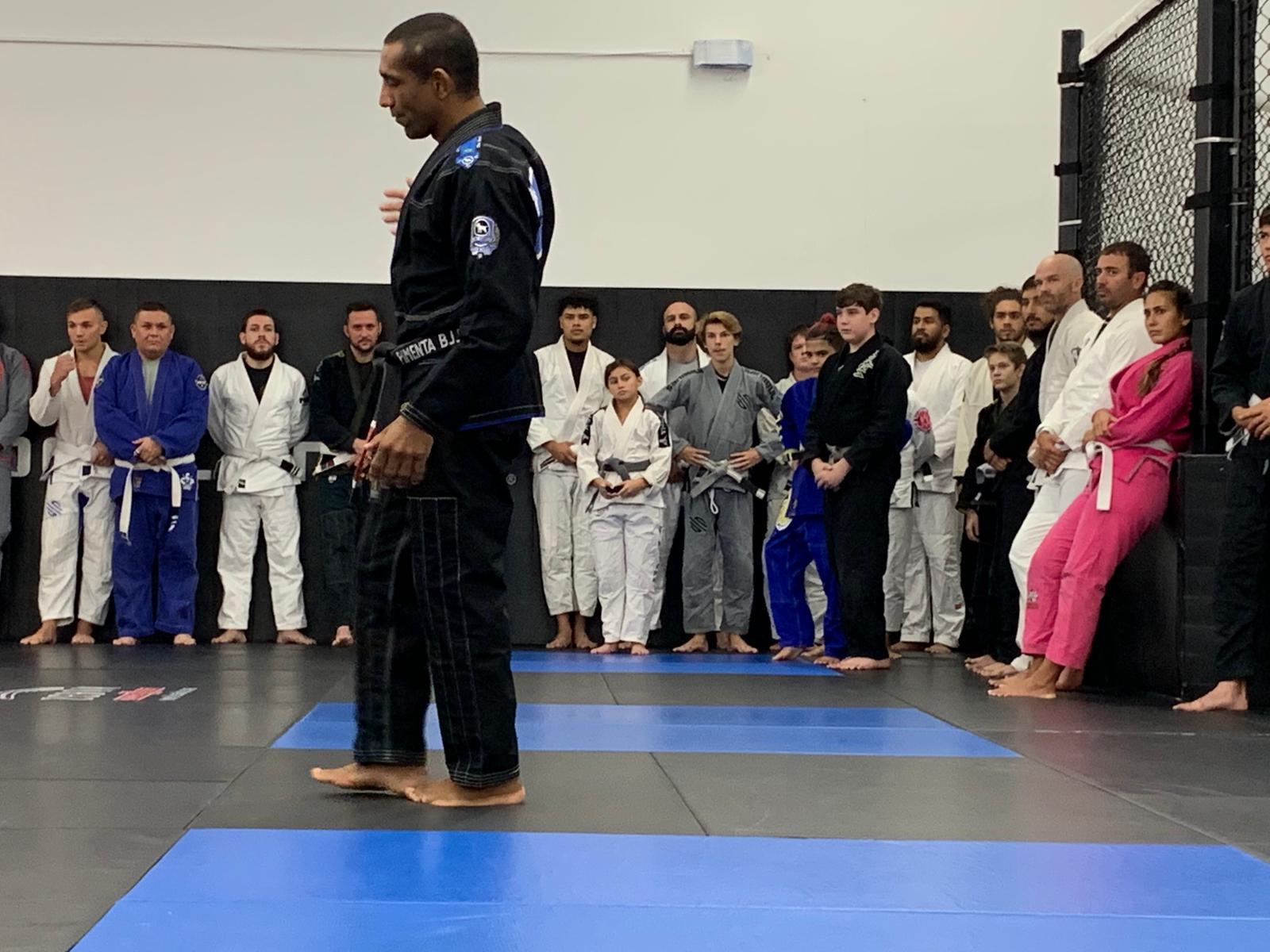
Denilson Pimenta during a Jiu-Jitsu class. Photo: Personal Archive
Denilson Pimenta, 40, has tons of experience to share. From his tough beginnings in Rio de Janeiro, he learned to overcome obstacles as masterfully as he teaches jiu-jitsu — an art he has been practicing since 1991, which was a way he found to focus on positive things and get away from the dangers that plague the city.
Today, with more than ten years of teaching experience and over a thousand medals, Pimenta lives in Naples, Florida, where he leads the entire jiu-jitsu methodology at Evolution MMA — and Orlando BJJ, on weekends. But it was only in 2008, the first time he traveled internationally to fight, that Pimenta realized that BJJ could become his job and change his life for good.
“I came to fight in the U.S. for the first time and was impressed by the way our art is respected and valued in these parts,” he said in a recent interview. “This motivated me to train more and become more and more of a professional. I learned to teach class, I learned training methodology and, mainly, how to communicate better.”
He added: “Traveling is important because you learn a lot and increase your cultural repertoire. I went back to Brazil invigorated and today I’m here, with my family. It wasn’t easy, but it was worth the effort.”
With 11 years’ experience as a teacher, Denilson — a master champion himself — has begun seeing his first champions emerge. In 2020, for example, one of his students took gold at the Master Worlds.
“As soon as I moved to the U.S., I had to dedicate myself more to teaching, and thus I changed my teaching method for the better, so that my students would understand things faster,” he said. “Due to this change, I had my first master world champion student. I hope that, in three years, I’m able to make a student into an adult world champion — among them, my son Arthur Pimenta, who will be competing in his first World Championship.”
Pimenta, a black-belt under Julio Cesar Pereira, left us with his final thoughts:
“In Brazil, we have a teaching method focused on competition — as much as that’s been changing through the years. But in the U.S., teaching focuses on improving quality of life, because not everybody competes. Here jiu-jitsu is sold as quality of life and a tool for personal development, because you see a person evolving in life due to practicing a sport.”
“The biggest lesson I’ve learned is that jiu-jitsu changes people’s lives, from the poorest to the richest, from the youngest to the oldest. That, to me, is incredible.”
The post Denilson Pimenta on the job of BJJ in the U.S.: ‘improving quality of life’ first appeared on Graciemag.